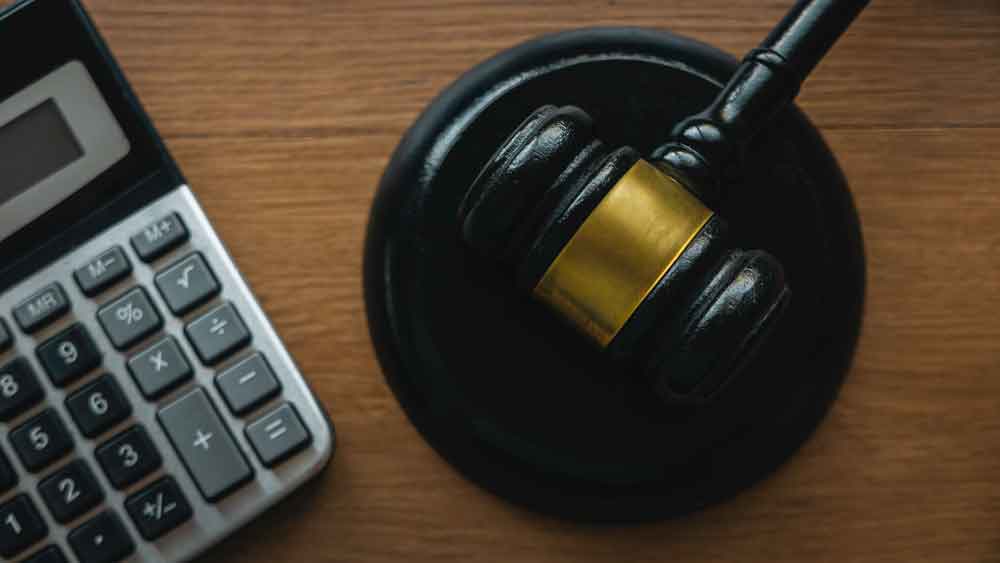
If you’re trying to understand the difference between bail and bond, you’ve come to the right place. In this article, I’ll help break down all the basics of each system and how they work so that you know exactly what to expect should a situation arise in which one or both are necessary. By the end, you’ll have a clear understanding of how bail and bond differ and can make an informed decision as to which route best fits your needs.
What is Bail?
Bail is a process that allows defendants to be released from custody while they await trial or sentencing. Bail refers to money or other forms of security such as personal property that the defendant pays in order to secure release from custody. The amount of bail set is usually based on factors such as the severity of the crime, the potential risk posed by releasing the accused, and any prior criminal convictions. If the bail is paid and all court appearances are made, then the defendant will receive their money back at the end of their case.
Bail is posted by an individual or organization approved by the court, known as a “bail bondsman” or “surety.” A surety company typically requires collateral from an individual who wishes to use their services, such as a house or car title, cash deposits, or jewelry. The collateral serves as a guarantee that if the defendant does not appear for court hearings associated with their case then the surety will pay a predetermined amount to cover costs and fees incurred.
The purpose of bail is twofold: firstly it allows those accused of certain crimes have an opportunity to remain free while awaiting trial instead of having to stay in jail; secondly it helps ensure that those who do make bail return for their assigned court dates and do not flee justice.
What is Bond?
Bond is a form of surety that is typically required by the court in order to secure release from custody while awaiting trial or sentencing. The bond is paid by an approved third-party known as a “surety” or “bail bondsman,” and serves as collateral should the defendant fail to appear for their assigned court dates. Bonds are usually more expensive than bail and require additional legally binding commitments such as documents and co-signers.
Bonds also come with additional restrictions not applicable to bail agreements, such as travel limits or participation in rehabilitation programs. These restrictions can lead further to confusion when trying to differentiate between bail and bond, but it is important that all caveats are understood before payment of either option is rendered. Additionally, fees associated with each option must be taken into account, as well as any costs incurred due to legal requirements imposed by the court regarding the posting of bond.
In some cases, if all terms laid out in a bond agreement are fulfilled then the defendant will receive some or all of their money back at the end of their case. However, there is no guarantee that this will happen; therefore it is important to thoroughly understand any legal obligations associated with both types of financial obligations before committing either financially or legally.
How Are Bail and Bond Different?
Bail and bond can often be confused as they are two related but distinct pieces of the criminal justice system. Both involve certain monies or other forms of security being paid to the court in order to secure release from custody and ensure the accused appears for their assigned court dates. The main difference between bail and bond lies in who pays for them and who can purchase them.
With bail, it is usually secured by the defendant’s own money; however, if a family member has enough funds in savings then they may also use that money to secure bail. Bonds typically require a third party called a surety company in order to guarantee payment of any obligations owed to the court — this third-party may not necessarily be related to either the accused or their family members. This difference is significant as it affects who must meet payment requirements set forth by the court and which entities will receive any financial compensation should such payments become necessary.
Additionally, bonds often come with additional restrictions not applicable to typical bail agreements which can lead further to confusion when trying to differentiate between the two. It is important that those considering their options understand these differences as well as fees associated with each option so they can make an informed decision before committing either financially or legally.
What Should I Know About Both?
When it comes to bail and bonds, it is essential that you are well-informed of the different options available. Before making any decisions, it is important to do research ahead of time in order to fully understand exactly what each entails. Make sure to become familiar with key terms such as indemnitor (the person responsible for paying out monies should they become necessary), principal (the accused) and surety (the company guaranteeing compliance).
In addition, it is wise to keep a close eye on any fees associated with each option and ensure you have a clear understanding of any restrictions or conditions imposed on either one prior to making your final decision. This way, you will be able to evaluate the financial realities of your commitment before delving into anything too deep.
Lastly, if possible, talk through your options with someone experienced so that they can provide you helpful insights or guidance when making an informed decision. Remember that having good information at hand and consulting with trusted parties can make all the difference when navigating these sometimes complicated situations.

When It Comes to Bail or Bond, Which Is the Best Option for Me?
Deciding which option is best for you between bail and bond can feel overwhelming. But don’t worry! We can take one step at a time to figure it out together.
First, think about money: if you have the funds ready, paying cash up front might be your fastest way out of jail. But if that’s not possible, an alternative is getting a surety bond from somebody who helps to guarantee you show up in court.
Finally, remember that both choices have possible costs associated with them. Bail could include forfeiting something that belongs to you; bonds might involve extra fees or insurance payments on top of what you already pay. It’s important to make sure you know all of these details before making a decision so that there are no surprises later down the line.
Why Choose Bail My Tail for your Bail Bonds Needs?
Bail My Tail Bail Bond Agency has been providing an unbeatable combination of experience and quality for over 38 years. Led by owner Eugene Butler, the team offers professional and reliable services that have been honed through decades in the industry. Their straightforward approach and commitment to transparency mean that clients can trust that their case will be treated with respect and integrity. What’s more, they offer competitive rates while still delivering top-notch service without sacrificing on quality. This makes Bail My Tail the perfect choice for anyone looking for exceptional bail bond services.
Contact us Right Away!
CONTACT US RIGHT AWAY
